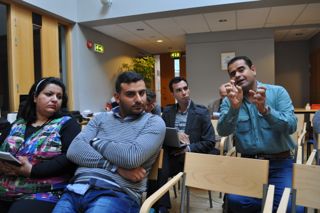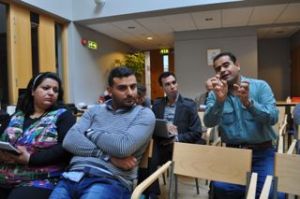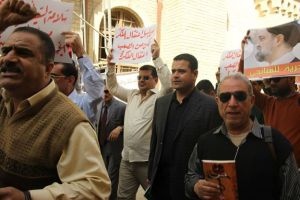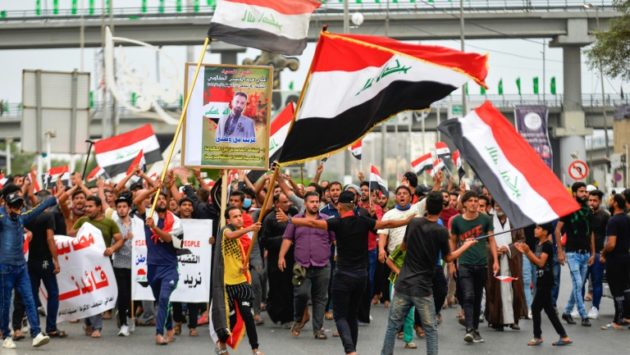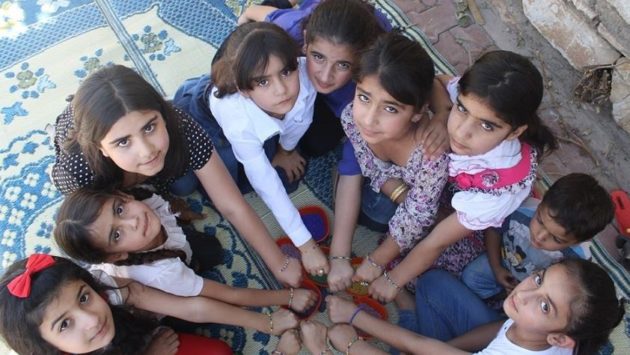Testimony about the Challenges Media Faces in Iraq after the Collapse of Mosul!
Journalist Saadoon Mohsen Damed
Madarik Foundation
Testimony submitted for ICSSI Conference
Oslo – Norway – November 2014
Introduction:
Talking about freedom of expression, particularly about the challenges the media is facing in Iraq, after the so-called “Collapse of Mosul” on 10 June 2014, might seem a kind of luxury, as we are facing serious and direct threats to the right to life. Daaesh has robbed us of this right in clear and explicit defiance of the state, our society, and the international principles of human rights. Despite the threat of Daaesh, the process of monitoring and documenting the ability of the media and professional journalists to obtain and communicate the truth is still vitally necessary, especially because media is the window that exposes the threats to everyone’s rights and freedoms. Thus, it is necessary to identify at the earliest possible moment any challenges or obstacles that are preventing the media from fulfilling its social, political and civic duties.
Challenges:
The first challenge was the loss of the truth. The media could not provide guidance during this crisis; in the complete absence of information, the media could not identify those responsible for the largest failure of security force in Iraq’s modern history, which was exemplified by the fall of three provinces and the arrival of terrorist forces on the borders of the capital Baghdad. Nor was media able to determine if Iraq was facing a terrorist attack led by extremist forces coming from outside Iraq’s borders or a mass uprising led by forces that despised and opposed the government and its policies. Here the facts reported were contradictory and determining the truth became a very difficult and scary undertaking. In the midst of the exchange of sectarian rhetoric and hate speech, professional and objective reporting became a joke.
The second challenge was presented by the immense scale and the many forms of crimes committed by Daaesh, which included genocide targeting specific races and denominations, systematic killing, rape, abduction, and displacement. The variety of these grave crimes and the sheer number of citizens who were victims confronted Iraqi media with challenges that they were not prepared for. There were no professional and independent media institutions able to report on the extraordinary violence and armed conflict. This is a strange paradox that the media workers who live within countries that are most affected by war and conflict are unable to face the challenge of reporting on these events. Thousands of Iraqi citizens experienced serious crimes that nobody learned about; media from Iraq, and beyond, couldn’t cover their suffering.
Even now, no one knows exactly what happened in the city of Mosul, either during the first moments of collapse, or what happened afterwards as a result. In Tal Afar and the Nineveh Plain, Sinjar, and the other districts and areas, it remains unclear how much carnage affected the Shiite Turkmen, the Yazidis and the Shabak, the groups that were targeted by Daaesh.
In my work as a reporter, I traveled through several provinces and met with senior officials, but I could not get information to answer the big questions I had. It was particularly difficult to get information concerning what the Yazidis had confronted. I met with Mr. Eddo Baba Sheikh, the advisor to the President for the Yazidis; I also met with the Governor of Dohuk, Mr. Farhad Atrushi, because this province received the largest numbers of the survivors of the massacre carried out by Daaesh, However, I did not obtain accurate figures concerning the number of victims, nor could I get documents that confirmed the occurrence of kidnappings, rape and genocide. So reports of these crimes continued to be rumors. I did learn about serious international and local efforts to collect information and document the atrocities, but these efforts will take a great deal of time, and may never reveal the full truth.
In my efforts to learn what had happened to the Turkmen Shiites, I had met with Mr. Hassan Turan, leader of the Turkmen Front, and with the President of the Kirkuk Provincial Council; I encountered the same crisis of lack of information and inability to document crimes. Even the Turkmen Front does not have accurate numbers concerning the deaths of Turkmen, nor how many have been displaced, or where they currently are.
The same lack of information applies to all the provinces into which IDPs have moved. In my efforts to learn the conditions of the displaced and to document their numbers and which ethnic groups they come from, I met the presidents of the local authority for the provinces of Karbala and Babylon. Those meetings did not produce any reliable information, There are no accurate statistics concerning the displaced, or their distribution according to region, ethnicity, religion or sect that would allow us to understand the on-going conflicts and tensions that lie behind these crimes.
The third challenge is that the media is unable to determine the scale and exact nature of the threats that Iraq is facing, which makes it difficult for the media to fulfill its mission and responsibilities. On the one hand, there are forces belonging to the Sunni sect that claimed control of Mosul and other collapsed cities who said that Daaesh is only a small force that they could control. On the other hand, however, these Sunni forces refused to take responsibility for the crimes committed by Daaesh. They were, in fact, unable to control Daaesh, to prevent their crimes or the crisis.
During my personal field tour, I conducted interviews with a group of officials, including the official spokesman for the rebels and the governors of Mosul, and Kirkuk, and also the governors of Karbala and Babil (which are also threatened by Daaesh). The outcome of this round of interviews was that I learned that the officers did not have a clear vision of the nature of the threat nor how to confront it. They could not provide proof that they had sufficient defenses to prevent further disaster, which means that the media in Iraq is unable to offer a clear picture of what is happening.
The inability of the media to describe all the important aspects of the disastrous events in Iraq, means that the situation in Iraq – which is the most serious situation in the world now – is not understood, neither by Iraqis themselves nor by others throughout the world. This is a serious, global crisis, because Daaesh threatens not only Iraqis; it also threatens the rights and humanity of all. We may eventually find out that the international community remained silent for too long time concerning the development of Daaesh, while it grew able to commit major crimes against Iraqi civilians, especially threatening the rights of minorities, and the sectarian and ethnic diversity of the country.
The lack of reliable information affects not only Iraqis but public opinion in the larger international community, opinion that will be extremely important in guiding future global policies.
Responsibilities of the International Community:
Based on the foregoing, I conclude that the international community – civil society foremost, but also political leaders – must try to remedy the situation in two ways:
First: Press for global intervention in order to counter the threat of Daaesh. Iraq’s army and security forces are suffering from extreme sectarian division, hence they cannot successfully wage a war against an organization that is exploiting this division. (Daaesh claims that it defends the oppressed Sunni community.) Iraqi forces today depend on a number of Shia militias, even if they are formally called the “popular crowd”. All this makes the war against Daaesh, which is a war for the right to life, appear to be a sectarian war. All this makes it extremely dangerous and very difficult to achieve victory over Daaesh.
Second: Call on relevant institutions to monitor the hate speech and sectarian coverage of events in Iraq, especially in Arabic-speaking media, and work to counter the arguments that may be aggravating the situation in Iraq.

